Opposition leaders tussled to define themselves as the best challenger to the current prime minister, Conservative leader Stephen Harper, saving most barbs for his policies.
Canada’s four opposition parties—the Liberals, New Democrats, Bloc Quebecois, and Greens—each fall on the left side of the political spectrum while the Conservatives are Canada’s sole major right-wing party. The opposition parties shared criticisms of Harper on the key debate topics: the economy, the environment, healthcare, arts, crime, and the country’s role in Afghanistan.
The leaders were required to debate in both official languages. Wednesday night’s debate was in French, and Thursday’s was in English, the language spoken by the majority of Canadians. Still, that didn’t assure a large audience. Host Steve Pakin even hurried leaders to finish their comments for fear viewers would flip to the Palin-Biden debate.
Harold Chorney, a political economist at Concordia University was disappointed with the party leaders’ response to the downturn in the U.S. economy.
In particular, he found it revealing that “they are all so terrified of uttering the word ‘deficit.’”
Chorney said the government should have a specific plan to address impacts of a U.S. downturn on Canada, and that running a deficit budget should be on the table.
“Otherwise we are going to be getting caught blind-sided,” he said.
The economic turmoil in the U.S. has figured prominently in the Canadian election. Mr. Harper has promoted himself as a steady hand, acknowledging a global economic slowdown, but insisting that Canada’s economy was “solid.”
“Canada is not the United States,” he said in Wednesday night’s French-language debate, adding that Canada’s economic “fundamentals are very strong.”
“The big challenge is to stay on the right track,” he said.
The other party leaders insisted Canada could not be immune from the slowdown of its largest trading partner and said Harper was failing to prepare Canada.
“You’re the danger,” Liberal Leader Stephane Dion said to Harper. Dion promised a 30-day plan if elected to consult with provincial leaders to prepare an economic plan.
No leader would admit they’d put the country into a deficit if the economy slows down.
Harper took sharp criticism during the environment portion of the debate, particularly for the intensity targets that are the cornerstone of the Conservatives’ efforts to reduce green house gasses.
While lauding his own party’s Green Shift plan to tax pollution and cut income taxes, Dion said Harper has no credible plan on climate change.
He also vehemently denied Harper’s charge that the Liberal’s plan would raise taxes.
Green Party Leader Elizabeth May accused Harper of having the weakest pollution targets in the industrialized world while New Democratic Party Jack Layton said Harper was giving oil companies tax cuts.
Harper defended his plan and added his party has already expanded national parks.
The $45 million in cuts to culture funding announced by the Conservative government last August was hotly debated.
Harper was condemned by all sides for not recognizing the economic value of arts and culture. Opposition leaders said the cuts threatened Canadian identity.
May charged that the cuts were politically motivated.
While Harper defended his government’s decision by noting where increases in arts and culture have been made, such as a $500 tax credit for every child enrolled in an artistic or cultural activity, Layton shot back.
“Most people in the arts wouldn’t be able to afford to send their kids to piano lessons,” he said.
With additional reporting by Matthew Little and Cindy Chan.
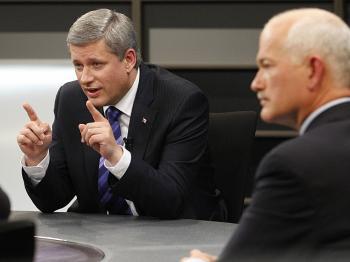
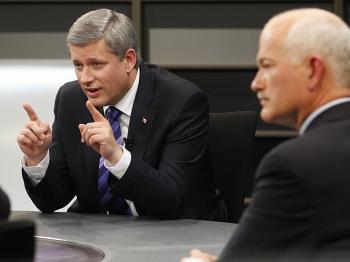
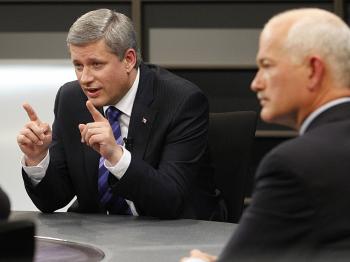
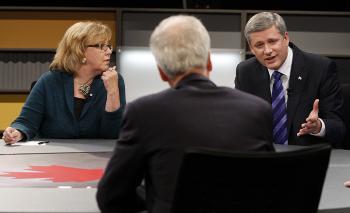
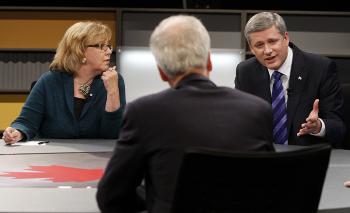
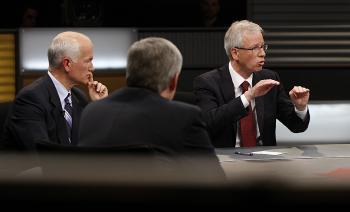
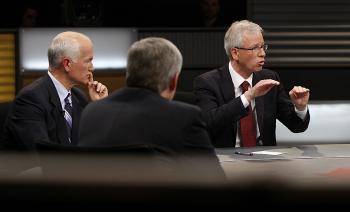
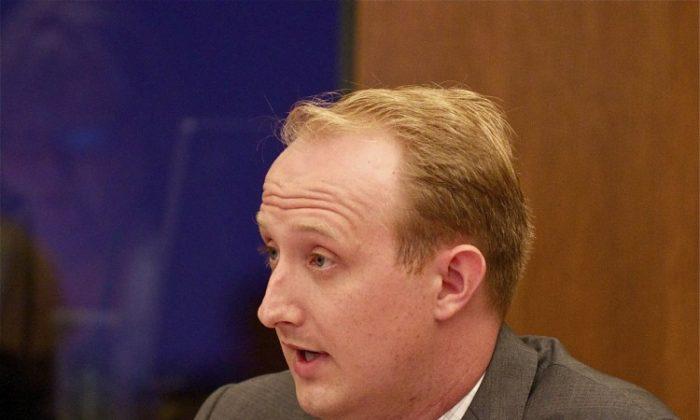

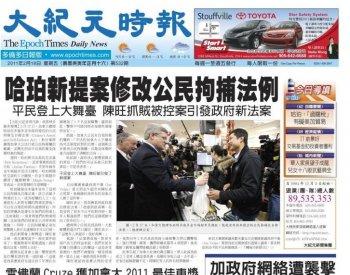
Friends Read Free